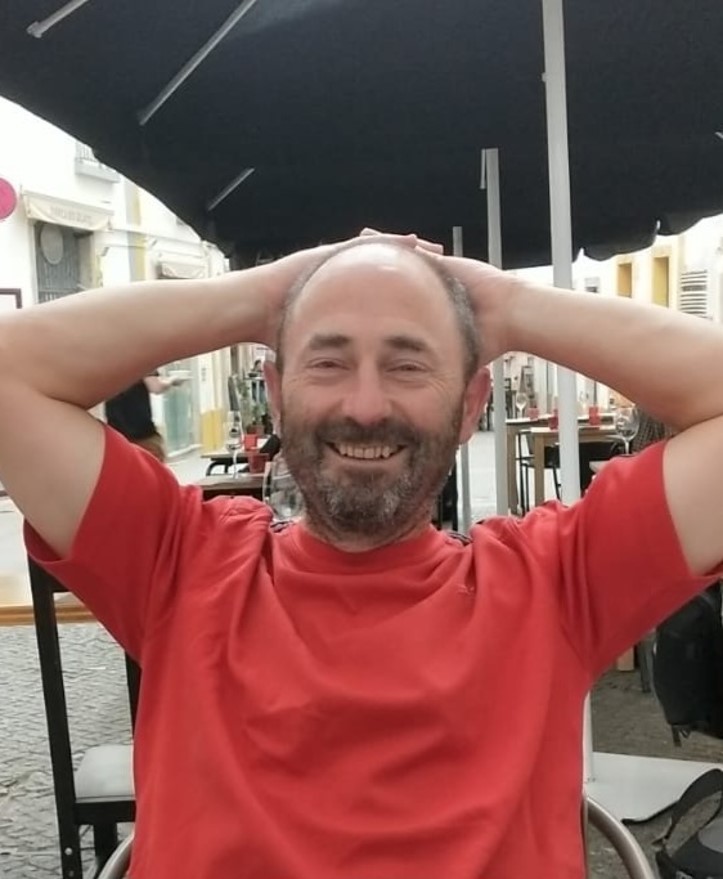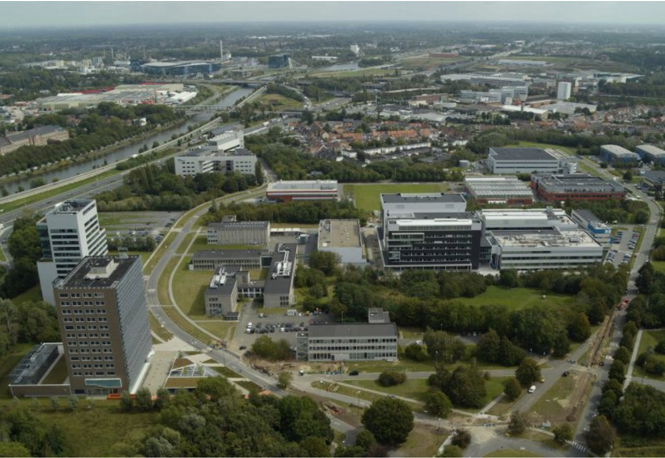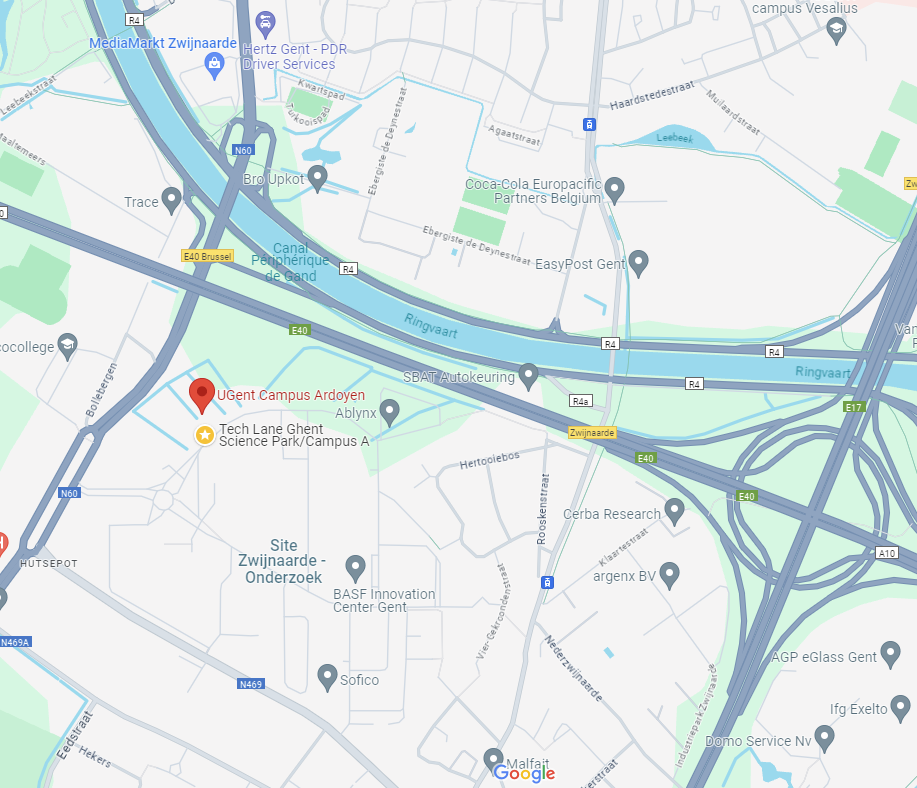
Welcome
IBCE is a Hybrid Event with both on-site and online presentations/activities.
First call for papers can be downloaded here:
Conference proceedings will appear in IFAC-PapersOnline, indexed in WoS and Scopus.
The 4th IFAC Workshop on Internet Based Control Education (IBCE24) will be held Wednesday through Friday, September 18-20 at Ghent University, Belgium. The pandemic crisis has emphasized, more than ever, the importance of online (internet based) teaching and has changed the way of teaching. Furthermore, the pandemic situation highlighted the need for effective internet-based control education. The motivation for this workshop is the recognition that student learning can be enhanced through the judicious and effective use of online resources and services accessible on the Internet. This workshop will serve as an international forum for interaction among engineers, scientists, and practitioners of control engineering who are interested in adopting and promoting Internet-based methodologies for teaching control engineering. The workshop will be organized in hybrid form (online and physical attendance). This will facilitate participants from developing countries to contribute to this event.
The workshop will address the following topics (but not limited to)
Internet-based control education; e-learning in control engineering; Interactivity and interactive tools; Enhanced e-books; Virtual and remote labs, virtual reality; Web-based educational environments; Personal learning environments; Social software in control education; Continuing control education in industry; Internet-based control education assessment; Quality Assurance in e-learning; Social and educational issues in developing countries; Collaborative learning; Problem-based learning; Online tutoring; Closing the gap between control education practice and control engineering practice; International programs in internet based control education; Cultural and social issues of control education
The IBCE24 workshop features two Benchmark Challenge Competitions (BCCs):
BCC1: Control of anesthetic and hemodynamic states in patients (more information will follow)
BCC2: Control of continuous manufacturing process of oral tablet production (more information will follow)
anesthesia patient simulator
This open-source patient simulator is an advanced platform designed to challenge and deepen anesthesia-hemodynamic process understanding. It's not only perfect for refining control strategies for optimal anesthesia-hemodynamic control but also serves as a robust environment for design, testing, and evaluation. Ideal for both professors and students, it can be a solution for hands-on exercises in control engineering when online teaching making it a valuable tool for control education.
The Matlab/Simulink files can be downloaded HERE
Full description of the simulator can be found here: https://ieeexplore.ieee.org/document/9316655
tablet production simulator
The complex process of pharmaceutical manufacturing poseses many challenges from both modelling an control perspectives. Hence, the open sourse simulator for tablet production using the direct route is a suitable environment for process understanding and design, test and evaluation of control strategies. Ideal for both professors and students, it can be a solution for hands-on exercises in control engineering when online teaching making it a valuable tool for control education.
The Matlab/Simulink files can be downloaded HERE
More information about the process can be found here: https://www.mdpi.com/2227-9717/11/4/1258 https://ieeexplore.ieee.org/document/9801916 https://www.sciencedirect.com/science/article/pii/S2405896321017213
Committees
IFAC Main Sponsoring Technical Committee
TC 9.4 – Control Education
IFAC Co-Sponsoring Technical Committees
TC 3.1 – Computers for Control
TC 3.3 – Telematics: Control via Communication Networks
TC 2.1 – Control Design
TC 6.1 – Chemical Process Control
Organizing Committee
NOC Chair: Dana Copot, Ghent University, Belgium
NOC Vice Chair Industry: Wouter De Soete, Johnson&Johnson, Belgium
IPC Chair: Alberto Leva, Politecnico Di Milano, Italy
IPC Vice Chair: Elena Zattoni, Bologna University, Italy
IPC Vice Chair Industry: Christoph Portier, CESPE, Belgium
Proceedings Editor: Simona Caramihai, Bucharest University, Romania
Proceedings Co-Editor: Jerome Cieslak, Bordeaux University, France
NOC Members: Isabela Birs, Annelies Coene, Martine Neckebroek, Hamed Farbakhsh, Erhan Yumuk, Ghada Ben Othman, Amani Ynineb
IPC Members
Ben Othman Ghada, Belgium
Birs Isabela, Belgium
Caruntu Constantin, Romania
Cajo Diaz Ricardo, Ecuador
Coene Annelies, Belgium
Copot Dana, Belgium
Copot Cosmin, Belgium
Cieslak Jerome, France
Costa Castello Ramon, Spain
De Keyser Robin, Belgium
Dormido Sebastian, Spain
Dulf Eva, Romania
Farbakhsh Hamed, Belgium
Guzman Jose Luis, Spain
HosseinNia Hassan, Nederlnds
Ionescu Clara, Belgium
Koton Jaroslav, Czech Republic
Visioli Antonio, Italy
Mac Thi Thoa, Vietnam
Maxim Anca, Romania
Mendonça T., Portugal
Muresan Cristina. Romania
Padula Fabrizio, Australia
Pasik-Duncan Bozenna, USA
Pinto Carla, Portugal
Anthony Rossiter, UK
Vilanova Ramon, Spain
Soltesz Kristian, Sweden
Yumuk Erhan, Belgium
Wahlquist Ylva, Sweden
Zhao Shiquan, China
Submission
Important dates
01 February 2024
Submission Site Opens
31 May 2024
Draft Paper Submission Due
30 June 2024
Decision on Acceptance
31 July 2024
Final Paper Due
More information about the IFAC activities can be found here
Instruction for the Authors
Papers must be submitted in PDF form according to the IFAC requirements. These can be found at https://www.ifac-control.org/events/author-guide.
Please note that only PDF files complying with the IFAC style rules and PDF requirements are admissible. Papers published in IFAC PoL must be between 4 (minimum) and 6 (maximum) pages in the final version. Please follow the author guide at https://www.ifac-control.org/events/author-guide.
Papers should be submitted online via the PaperCept system at ifac.papercept. All authors must have a registration number at the papercept system.
Accepted papers will be distributed at the symposium as pre-prints, and then published in electronic form on the IFAC-PapersOnline.
Copyright Conditions
All publication material submitted for presentation at an IFAC-sponsored meeting (Congress, Symposium, Conference, Workshop) must be original and hence cannot be already published, nor can it be under review elsewhere. The authors take responsibility for the material that has been submitted. IFAC-sponsored conferences will abide by the highest standard of ethical behavior in the review process as explained on the Elsevier webpage (https://www.elsevier.com/authors/journal-authors/policies-and-ethics), and the authors will abide by the IFAC publication ethics guidelines (https://www.ifac-control.org/events/organizers-guide/PublicationEthicsGuidelines.pdf/view ).
Accepted papers that have been presented at an IFAC meeting will be published in the proceedings of the event using the open-access IFAC-PapersOnLine series hosted on ScienceDirect (https://sciencedirect.com/). To this end, the author(s) must grant exclusive publishing rights to IFAC under a Creative Commons license when they submit the final version of the paper. The copyright belongs to the authors, who have the right to share the paper in the same terms allowed by the end user license, and retain all patent, trademark and other intellectual property rights (including research data)
More info
Plenary Talks

Prof. Anthony Rossiter
University of Sheffield, UK
Title: Teaching tools and methods for encouraging student engagement without overloading staff
It is well known that students learn more when they are active and thus a core challenge for teaching staff is to encourage effective student activity, both during teaching sessions and also student private study. However, an obvious obstacle is that often, creating effective resources and activities to encourage such engagement can be excessively time consuming for staff, or, simply not easily accessible to students. This talk will demonstrate a number of tools that Anthony has used in his own teaching practice, it must be said with varying success; these aspects will also be discussed honestly. Anthony’s teaching focusses largely around control engineering topics and thus many of the resources are focussed around that, albeit the underlying pedagogical message and approach are transferable to many engineering topics. The talk will also include a significant element on assessment: how can we do this efficiently and thus cope with delivering rapid feedback to large cohorts and minimising inefficient or time consuming marking practices? Also, how do we modernise assessment so it is fit for the 21st century?
- Turningpoint
- BB quizzes
- Threshold assessment
- MATLAB GUIs/apps
- End of year exams on computer: exam design, MATLAB and efficient marking, open-book
- Peer assessment
- Sympodiums
- Lecture flipping
- Take home laboratories
Biography: Anthony Rossiter is at the University of Sheffield, United Kingdom. He received the M.A. and D.Phil. degrees from Oxford University in 1987 and 1990, respectively. Following a brief postdoctoral position, he obtained his first academic post at Loughborough University in 1992 and subsequently moved to the University of Sheffield in 2001. He is best known for his contributions to predictive control and notably the early work on proposing and understanding dual-mode approaches alongside the foundational ideas and publications behind tube model predictive control. He is also the author of popular textbooks and online resources on predictive control, as well as numerous academic papers. More recently he has served as chair of both the IFAC and IEEE Technical Committees on Control Education and continues in leadership roles in the international control community in promoting the importance of both effective pedagogy and the potential for modern technology to enhance the student learning experience. His open-access teaching resources on the web (https://controleducation.sites.sheffield.ac.uk/) are widely used. His pedagogical work is based on the philosophy of what works effectively that can also be implemented simply and cheaply for both staff and students?

Prof. Jose Luis Guzman Sanchez
University of Almeria, Spain
Title: Interactivity for engineering education - Automatic Control with Interactive Tools
Abstract: This talk summarizes more than 20 years of experience in the use of interactive tools in control education activities. First, the relevance of Interactive in education in general and in control education in particular is presented. Afterwards, the impact of interactivity in the control engineering filed is summarized. Then, a learning/teaching methodology on how interactive tools combined with suitable educational material can be used to support control education is presented. The key point of this methodology is a set of learning cards that combine interactive software applications, a short theoretical description about the different concepts to learn/teach, a new kind of exercises to motivate students by a learning-by-discovery paradigm, and references to well-known books. This methodology and this new educational material is a powerful tool to transmit theoretical abstract concepts that are quite common in control theory. The resulting material is open for different user levels, in such a way that it can be used by beginner students, advanced students or professionals, and/or lecturers. Examples of how this methodology can be used in a basic control course will be introduced.
Biography: José Luis Guzmán Sánchez was born in Almería, Spain, March 20, 1979. He received the Computer Science Engineering degree and the European Ph.D. degree (extraordinary doctorate award) from the University of Almería, Spain, in 2002 and 2006, respectively. He started working at the University of Almería in 2001 with a scholarship and since then he has been linked to the University. Currently, he is Full Professor of automatic control and system engineering with the University of Almería, where he also belongs to the Automatics, Robotics and Mechatronics research group. His research interests are focused on the fields of PID control, feedforward tuning rules, MPC techniques, and robust control with applications to biotechnology, solar plants, and agricultural processes. Moreover, he is very active in research on teaching/learning methodologies/technologies on control education. More info: click here
Program
| Time | Wed 18 Sep | Thu 19 Sep | Fri 20 Sep |
|---|---|---|---|
| 08.00 - 08.30 | Registration | ||
| 08.30 - 09.00 | |||
| 09.00 - 09.30 | Plenary Session Prof. Guzman | Technical session 4 | |
| 09.30 - 10.00 | Opening Ceremony | ||
| 10.00 - 10.30 | Plenary Session Prof. Rossiter | Coffee Break | |
| 10.30 - 11.00 | Technical session 2 | ||
| 11.00 - 11.30 | Coffee Break | Coffee Break | |
| 11.30 - 12.00 | Talk 1 Dr.MD Neckebroek & Dr. Yumuk | Talk 2 Dr. Debruyne & Dr. Copot | |
| 12.00 - 12.30 | |||
| 12.30 - 13.00 | Lunch Break | Lunch Break | Lunch Break |
| 13.00 - 13.30 | |||
| 13.30 - 14.00 | |||
| 14.00 - 14.30 | Technical session 1 | Technical session 3 | Technical session 5 |
| 14.30 - 15.00 | |||
| 15.00 - 15.30 | |||
| 15.30 - 16.00 | |||
| 16.00 - 16.30 | Coffee Break | Coffee Break | Closing |
| 16.30 - 17.00 | |||
| 17.00 - 19.00 | Welcome and networking reception | TC meeting |
The complete event program can be found here:https://ifac.papercept.net/conferences/conferences/IBCE24/program/IBCE24_ProgramAtAGlanceWeb.html
Registration
The registration is open. To register click here
Wire transfer details:
Ghent University
IBAN BE59390096580026
Bank ING Belgium
BIC BBRUBEBB900
Reference: 1-125684 + Name Participant
For Wire transfer please send a proof a payment to dana.copot@ugent.be
All who wish to attend the conference (online or in person) must register and pay the registration fee via the conference registration page
Each accepted paper should be covered by one registration, otherwise the paper will not be included in the conference program and IFAC Papers Online.
The registration fee must be paid within the deadline for final upload of accepted papers.
Registration Fee Hybrid Event
| Symposium participation fee | 350 Euro | ||
| Registration Deadline: | 31 July 2024 |
Symposium participation includes
The fee includes final upload of one paper, admission to all on-site/online sessions (including workshops) and digital proceedings. The fee also includes coffee breaks, lunch and welcome reception.
Venue & Accommodation
IBCE24 will be held in a HYBRID format, blending physical and virtual events. The physical conference will be hosted at Ghent University, Faculty of Engineering and Architecture, Research Group on Dynamical Systems and Control
(DySC) while the entire event will also be streamed online.
The physical IBCE24 will take place in the Tech Lane Ghent Science Park, situated in Campus Ardoyen Ghent-Zwijnaarde.
Address is Technologiepark 126, 9052, Ghent-Zwijnaarde,
Belgium (google maps)
A map of Tech Lane Ghent Science Park can be found here CampusMap
Location:
Ghent University, Campus Ardoyen Ghent-Zwijnaarde
Tech Lane Ghent Science Park


Hotels at walking distance to/from train station and 10 minutes direct connection by tram 1 (in direction Flanders Expo):
Hotel BEST WESTERN: http://www.chamade.be/ e-mail: info@chamade.be
Hotel THE LORD: http://hotelthelord.be/ e-mail: info@hotelthelord.be
Hotels in city center
Hotel DE FLANDRE:www.hoteldeflandre.be; e-mail:info@hoteldeflandre.beHotel IBIS Ghent Centrum Opera:http://ibishotel.ibis.com/gb/hotel-1455-ibis-gent-centrum-opera/index.shtml ; e-mail:H1455@accor.com
Koestraat: http://www.koestraat46.be; e-mail:info@koestraat46.be
Sandton Hotels:http://www.sandton.eu/en/gent/; e-mail:nancy.vandenberghe@sandton.eu
Hotel Monasterium:http://monasterium.be ; e-mail:info@monasterium.be
Hotel GRAVENSTEEN:www.gravensteen.be ; e-mail:hotel@gravensteen.be
Hotel GHENT-RIVER:www.ghent-river-hotel.be ; e-mail:info@ghent-river-hotel.be
Travel to Ghent
-
By Plane
Ghent lies some 40 km to the west of the airport of Brussels and some 70 kms from Charleroi-(Brussels South Airport) if you fly Ryanair. See below how to reach Ghent from these different airports.
1/ Brussels Airport probably with Brussels Airlines, take a train towards Brussels, where you can change trains for Ghent at either Brussels North, Central or South (Midi). At each of these stations you can take the IC-Train either to Ostend, Knokke-Blankenberge or De Panne and exit in Ghent St.Pieters station. First stop after Brussels. (travel time approx. 35 mins). Information about train timetables and tickets check here
2/ Charleroi airport you can take a bus to Charleroi Station. From there you take the train to Brussels South and change trains there for Ghent. At this station you can take the IC-Train either to Ostend, Knokke-Blankenberge or De Panne and exit in Ghent St.Pieters station. First stop after Brussels. (travel time approx 35 mins) here
-
By Road
By car the city is accessible via two motorways:
The E40 connects Ghent with Bruges and Ostend to the west, and with Brussels, Leuven and Liege to the east.
The E17 connects Ghent with Sint-Niklaas and Antwerp to the north, and with Kortrijk and Lille to the south.
De Krook is located at the end of the B401 Exit road of the E17 Motorway, city location known as Zuid
-
Public transport
Ghent has an extensive network of public transport lines, operated by De Lijn. Information about bus/tram timetables and tickets check here
- More information about Ghent
